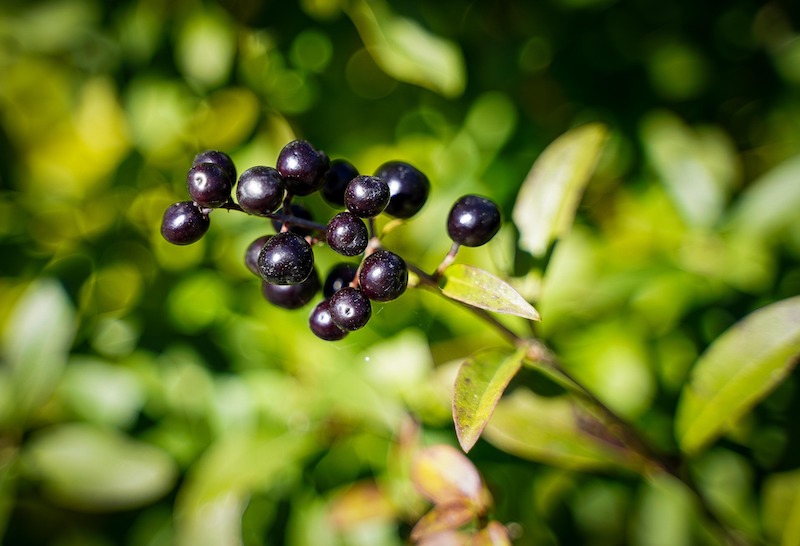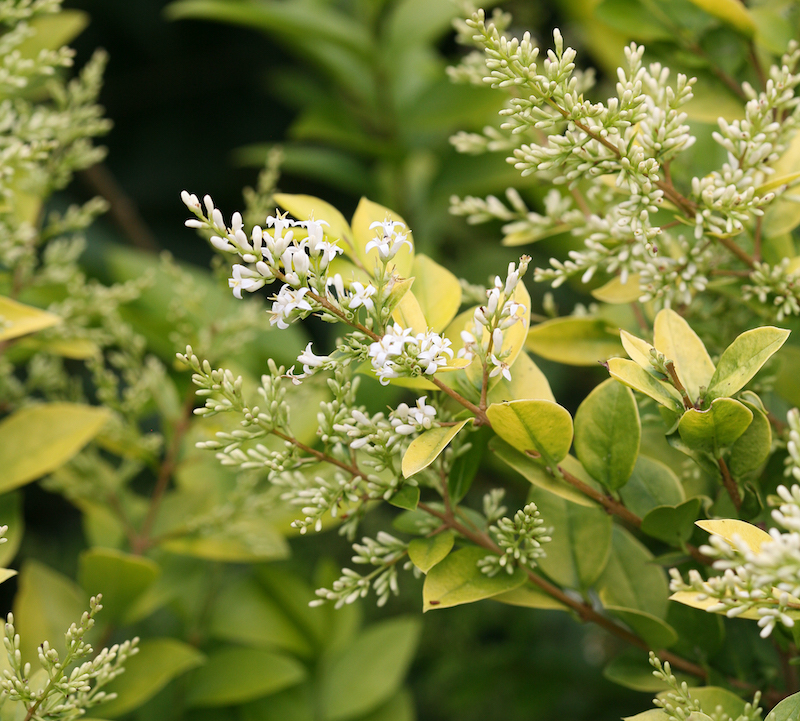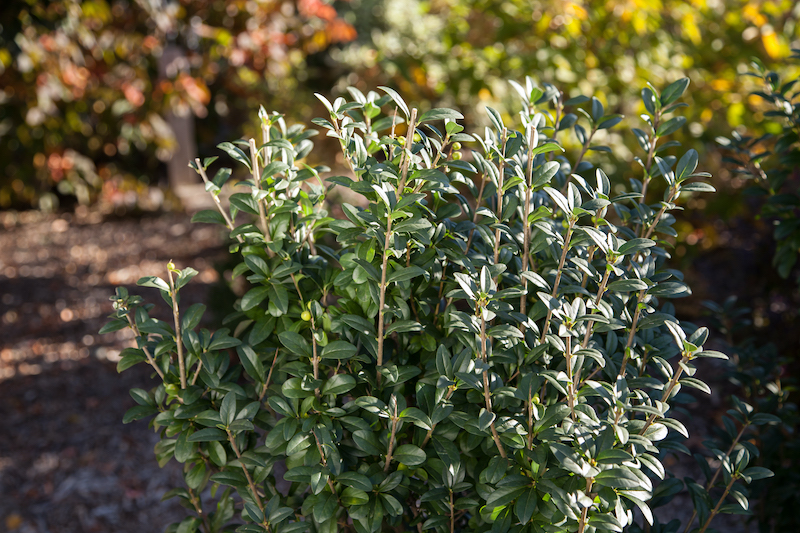Privet, scientifically known as Ligustrum ssp., is a common hedging plant found in many private and public garden settings. Even though it's widely used, it is a mildly poisonous plant and may not be the safest choice to use around children, pets, and livestock. The leaves and berries of Privet contain terpenoid glycosides, which can cause extreme irritation to the hands and mouth, and digestive distress. The pollen of the flowers is a seasonal allergen that can trigger asthma attacks.

Are Privets Poisonous to Children?
Children will be more likely to have an immediate or more extreme reaction to Privet because of their small size and lower body weight. Ingesting the dark-colored berries may be the most common way a child is exposed to the poison in Privet. The most common symptoms of Privet ingestion are mouth irritation, stomach upset, vomiting, and diarrhea. If you suspect your child has eaten Privet, contact your family doctor or poison control hotline as quickly as possible.

Are Privets Poisonous to Dogs?
Dogs, especially puppies, may chew on the stems or leaves of Privet. The leaves contain terpenoid glycosides that cause mild to severe reactions. A small amount of Privet will cause diarrhea, vomiting, food avoidance, labored breathing, and general unwell behavior in dogs. Rarely an extreme response will result in death. If you think your dog has eaten any parts of a Privet, contact your veterinarian as soon as possible. Make sure to have a sample of the plant for identification and a proper treatment plan.
Are Privets Poisonous to Cats?
The symptoms of poisoning in cats are the same as in dogs. Irritated mouth or paws, diarrhea, vomiting, food avoidance, loss of coordination, and, very rarely, death. A cat or kitten that ingests a small number of leaves or berries will typically have mild symptoms that may be managed at home. Cats are also affected by the terpenoid glycosides in Privet. Contact your veterinarian as soon as possible if you think that your cat has eaten Privet.

Are Privets Poisonous to Other Animals?
Privet is mildly poisonous to grazing livestock (horses, cattle, sheep, and goats) and other small pets such as rabbits and tortoises. Do not offer these pets the leaves of Privet as feed. The smaller pets can react severely to even small amounts of the leaves or berries. Privet plants can “escape” from garden cultivation and quickly reestablish in grazing areas. The shrubs need to be removed to prevent accidental grazing by livestock.
Symptoms Of Privet Poisoning
Always check with your doctor or veterinarian for guidance if you suspect Privet poisoning.
Here are some common symptoms to look out for:
- Stomach upset
- Vomiting
- Diarrhea
- Breathing difficulties
- Loss of coordination
- Death, in very rare cases
Preventing Privet Poisoning
Keeping children and pets away from Privet hedges is the best way to prevent accidental poisoning. Immediately disposing of pruned stems and foliage keeps the material out of easy reach. Privet is often grown instead of other shrubs because they grow quickly and are less susceptible to fungal disease. Planting Inkberry (Ilex glabra) or Cherry Laurel (Prunus caroliniana) are suitable substitutes for Privet.
Pet Poison Helpline
If something happens to your furry friend, and you suspect they are suffering from Privet poisoning, there is a poison control hotline to call for 24/7 vet advice. It is called the Pet Poison Hotline, and its phone number is (855) 764-7661.
Sources: "Privet." American Society for the Prevention of Cruelty to Animals. aspca.org
 |
Author Robbin Small - Published 9-18-2022 |
